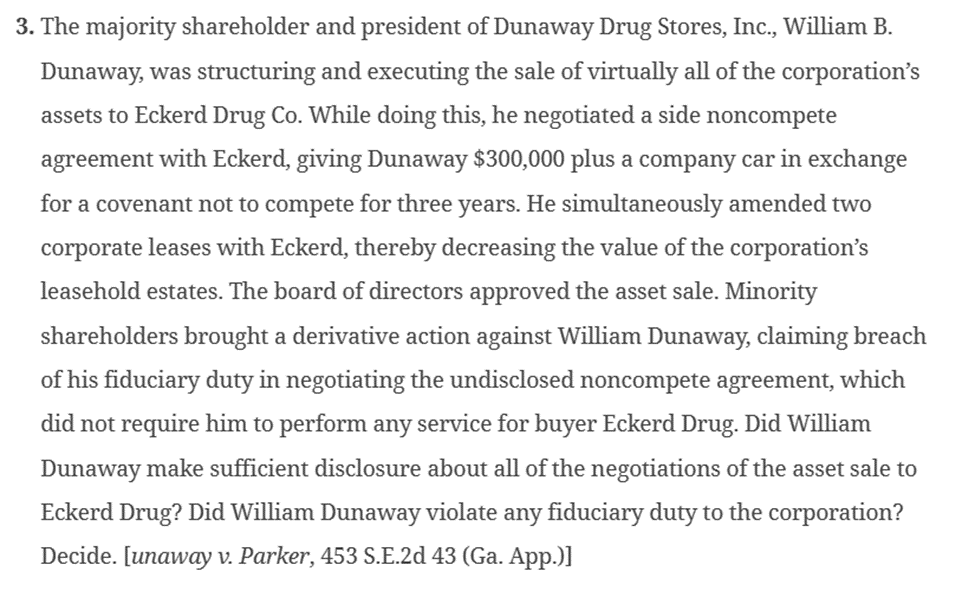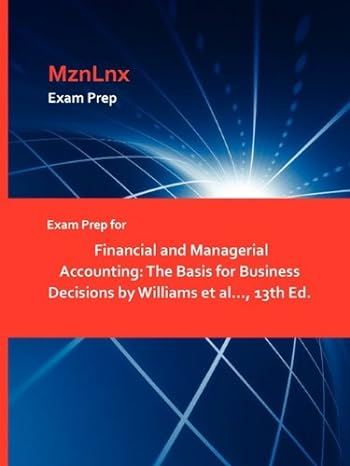Question
Business Law Q1 Henry Hatfield, CPA, was hired to prepare audited financial statements for Happy Campers, a nonprofit organization providing summer camp scholarships for inner-
Business Law
Q1 Henry Hatfield, CPA, was hired to prepare audited financial statements for Happy Campers, a nonprofit organization providing summer camp scholarships for inner- city, low-income children. The executive director of Happy Campers was embezzling but falsified records that Hatfield used in his audit. First Bank gave Happy Campers a SIOO,OOO loan based on Hatfield's certified financials. The embezzlement was discovered, and Happy Campers defaulted on the loan. Can First Bank recover its loss from Hatfield?
Q2 Shareholders Of Bear Stearns sued the directors Of the corporation for damages for violation Of the directors' fiduciary duties in effecting a stock-for-stock merger with J.P. Morgan Chase for an implied value of $10 per share while the companys stock had previously reached a 15-month high of $160. On March 10, 2008, information began leaking into the market that Bear Stearns had a liquidity problem. On March 13, 2008, the company was forced to seek emergency financing from the Federal Reserve and J.P. Morgan Chase. By the weekend of March 1416, the company could no longer operate without major financing. In an effort to preserve some shareholder value while averting the uncertainty of bankruptcy (where stockholders would likely receive nothing), and represented by teams Of legal and financial experts and relying on their financial advisor Lazard Freres & Co.'s opinion that the "exchange ratio is fair, from a financial point of view, to the shareholders," the board of directors approved the initial merger agreement. The shareholder plaintiffs contended that the ultimate $10 share price paid was inadequate and they presented their experts who vigorously dissected the board's decisions. What defense, if any, would you raise on behalf of the Bear Stearns board of directors? [In re Bear Stearns Litigation, 870 N.Y.S.2d 709]
Q3 
Step by Step Solution
There are 3 Steps involved in it
Step: 1

Get Instant Access to Expert-Tailored Solutions
See step-by-step solutions with expert insights and AI powered tools for academic success
Step: 2

Step: 3

Ace Your Homework with AI
Get the answers you need in no time with our AI-driven, step-by-step assistance
Get Started


